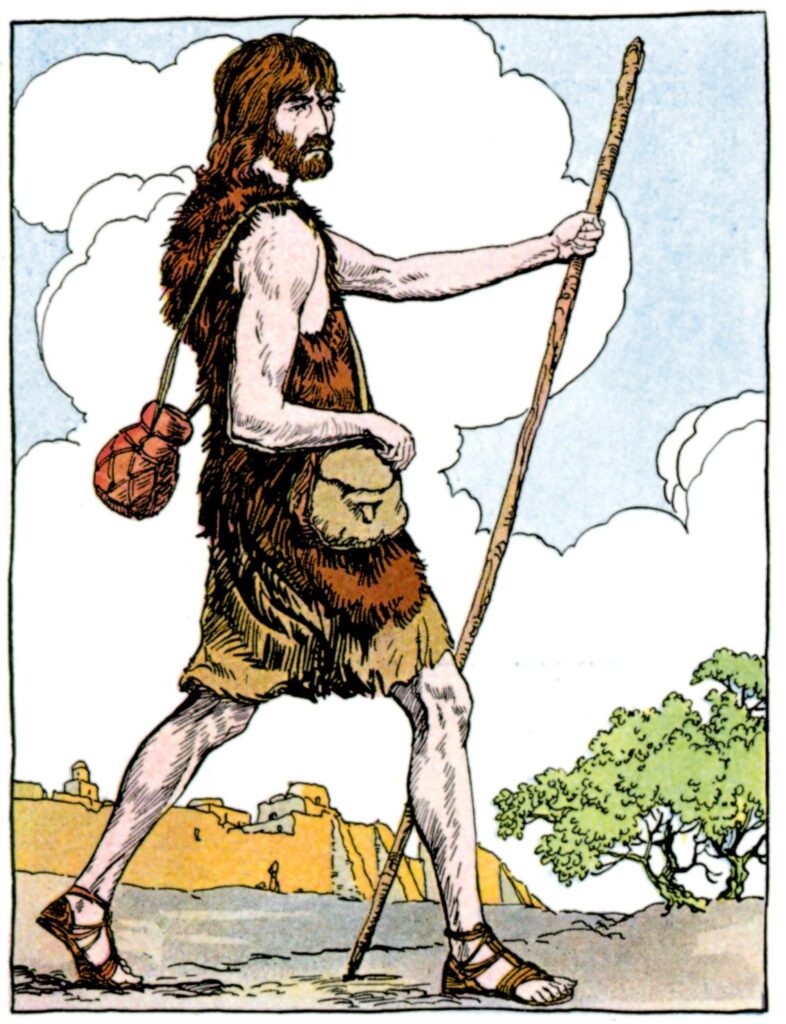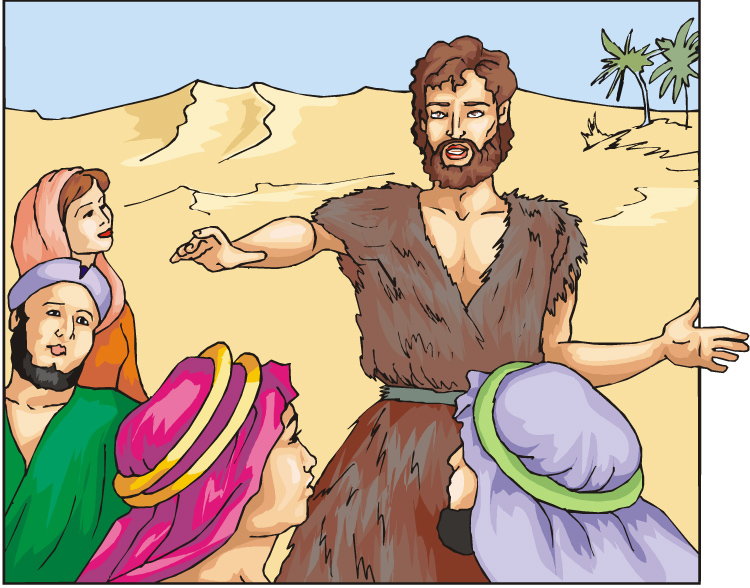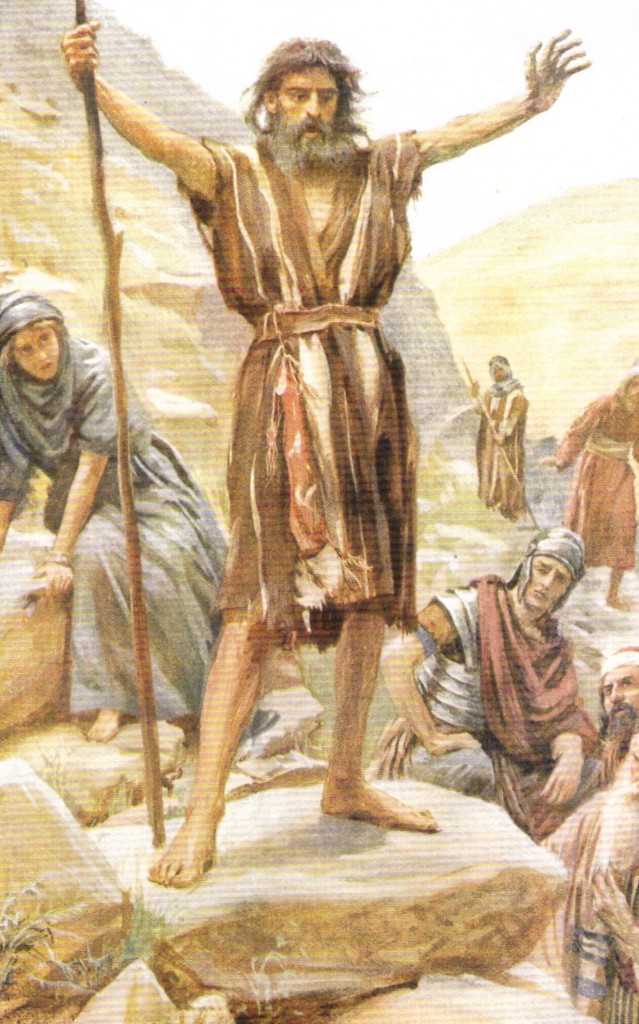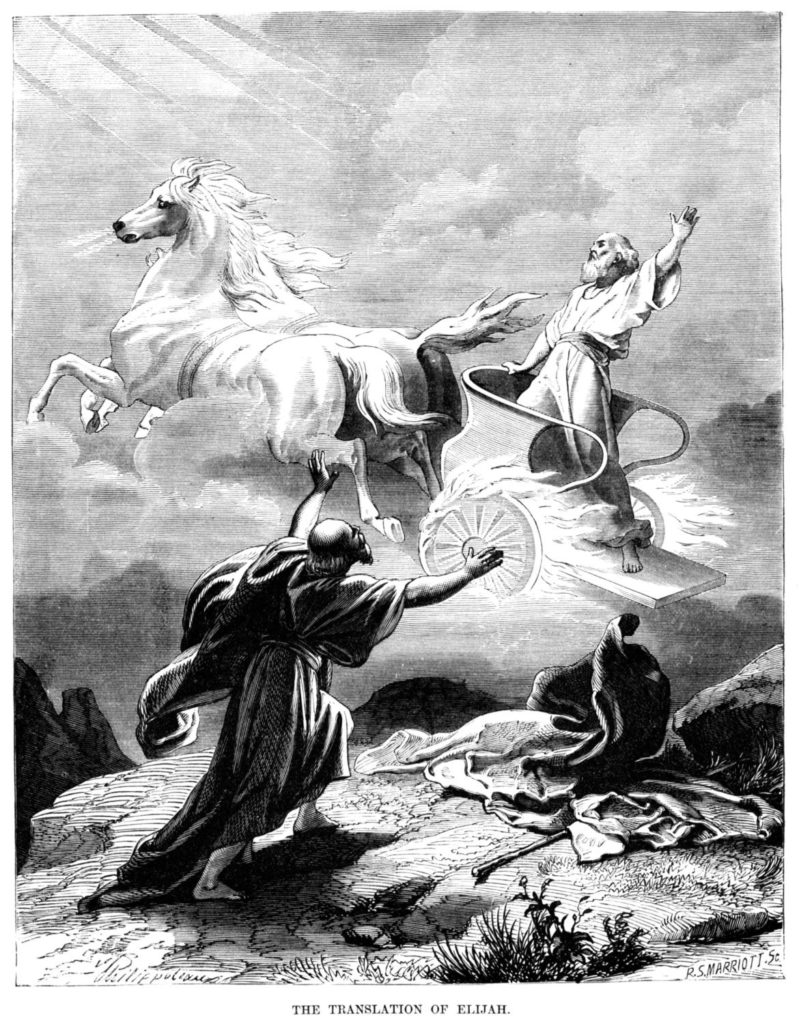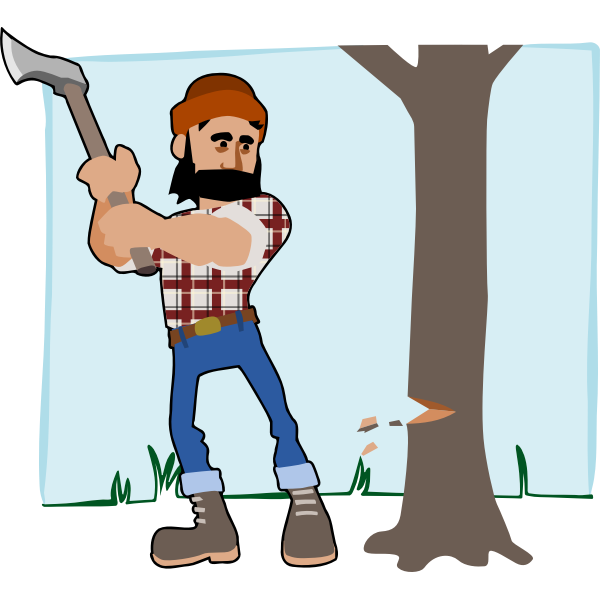
Matthew 11:1, To teach and to preach. Teaching and preaching are two different, though related, evangelistic tools.
Matthew 11:2, Are you the Coming One? Doubt and questions concerning the will, plans and purposes of Elohim can besiege even the most faithful and anointed servants of YHVH like John the Baptist. Even prophets see through a glass darkly. Even though John prophesied about the coming Messiah, who was also his close cousin, the exact nature of Yeshua’s ministry evidently had eluded John. YHVH had given John the exact message he needed to fulfill his divine mission and nothing more. What John’s expectations were of the Messiah, we are not told. However, it appears that Yeshua, in some way, did not exactly meet those expectations, thus prompting John’s questioning whether he was indeed the coming Messiah or not. What was Yeshua’s response to John’s question? “Look at the fruits of my ministry! These are the evidence that the kingdom of Elohim has come to the earth and is being expanded against the kingdom of darkness.”
Matthew 11:6, Offended. Gr. skandalizo from which our English word scandal or scandalize derives..
Matthew 11:7–12, Reed shaken by the wind…A man clothed in soft garments?
YHVH Is Raising Up John the Baptist–Type Preachers to Prepare the Way for Yeshua
John was no reed shaking in the wind—and neither are those who are now coming in that spirit to prepare the ways for Yeshua the Messiah’s second coming!

The Gospels contain many curious, arcane and cryptic statements by Yeshua that invite the reader to ponder and reflect on in order to fully understand and appreciate them. Matthew 11:7–12 is one such statement.
As they departed, Yeshua began to say to the multitudes concerning John: “What did you go out into the wilderness to see? A reed shaken by the wind? But what did you go out to see? A man clothed in soft garments? Indeed, those who wear soft clothing are in kings’ houses. But what did you go out to see? A prophet? Yes, I say to you, and more than a prophet. For this is he of whom it is written: ‘BEHOLD, I SEND MY MESSENGER BEFORE YOUR FACE, WHO WILL PREPARE YOUR WAY BEFORE YOU.’ “Assuredly, I say to you, among those born of women there has not risen one greater than John the Baptist; but he who is least in the kingdom of heaven is greater than he. And from the days of John the Baptist until now the kingdom of heaven suffers violence, and the violent take it by force.
This statement of Yeshua is a very telling commentary how he viewed the mainstream religious leaders of his day. This was juxtaposed against his view of John the Baptist, who, though he was of priestly lineage, had left the existing religious establishment and gone into the wilderness to prepare the way for the coming Messiah.
In his Matthew chapter eleven statement, Yeshua also predicts that a whole new genre of preachers would arise who, unlike the typical soft-spoken preachers of mainstream religion, would be violent and forceful in their demeanor and approach. This meant being violent in the sense of confronting the religious establishment as well as the lukewarmness and sin of the people as he forcefully advanced the agendas of the kingdom of heaven against the opposing forces of a reluctant and recalcitrant spiritual environment.
With regard to John, who was a spiritual pioneer and pacesetter for this new breed of preacher, and who had entered the placid, tepid and staid religious waters of his day like a typhoon, let us consider the implications of this as well as Yeshua’s view of John. John’s background is part of the context of this iconoclastic individual, which we will now view under a magnifying lens.
To start with, John’s father, Zechariah, was of such a priestly status that he was allowed to minister in the inner portions of the temple itself. Yet John left this system to fulfil a ministry mission that was even greater than that of his father. Although John likely did not realize it at the time—for he was simply following the leading of the Spirit—he, by Yeshua’s own declaration, was to become the greatest prophet of all time up until then. To fulfil that divine mission, John had to exit the existing religious system and its status quo into which he was born, and execute that mission from outside of that system. Why? Because the Jewish religious system of the day would not, never did, and still does not recognize Yeshua as the Messiah. In fact, they viewed him as a threat to their religious tradition not to mention their secure positions of power and wealth, and on numerous occasion, they even tried to murder him. Eventually, they finally succeeded.
YHVH called and raised up John, who was a special vessel, to stir the pot of the religious system of his day in hopes of waking up his few saints who were trapped in that system. It was John’s divine mission to put out a forceful call to those who had ears to hear to exit the Babylonian system of that day in preparation to meet Yeshua the Messiah. (YHVH is doing similar work in our day through similar type people as per the prophecy of Malachi chapter four.)

It was against this backdrop of constant religious antagonism and persecution that John executed his mission to prepare the way for Yeshua the Messiah, which involved clashing with the rich, powerful religious leaders of his day, who were concurrently in league with both the political and economic forces in control of that geographical region. The Truth and light of Messiah was literally confronting the satanic darkness of man’s religious, economic and political agendas. To use a jungle warfare term, John was the point man in this cosmic conflict, thus he took the incoming fire. To be sure, this was no place for a spiritual neophyte or a weak-kneed, limp-wristed, emasculated, pansy in the pulpit. This was a struggle to the death—a literal clash with demonic god-like Titans. Therefore, YHVH raised up a man with a powerful background for a tough assignment. John was immersed in the Spirit while still in the womb, and Scripture deems his parents to be spiritually faultless. His father was of high repute as a Levitical priest, plus John was the cousin of Yeshua the Messiah himself. This was no average family even in human terms. No. John was no spiritual lightweight in the boxing ring of religion. Out of the fiery forge and crucible of his familial background come a mighty sword of a man who YHVH raised up to lay a spiritual ax to the root of the religious tree of his day and to the man-made system that was leading people astray and making of none-effect the Word of Elohim by their traditions. John was no pansy, no weak reed shaking in the wind, no well coiffed, tailored suit wearing pastor in the pulpit speaking man-pleasing, flattering and ear-tickling words to pew warmers religious addicts sitting passively and comfortably in padded benches in neat little rows beneath stained glass windows getting their weakly religious fixes. No! YHVH called and commissioned John, who was a rugged man for a rugged job to prepare the way for the Messiah, who himself would carry this battle against the religious system to an unprecedented level in an effort to call out YHVH’s true followers, who would worship Elohim in Spirit and in Truth instead of merely playing religious games.
This now brings us to Yeshua’s cryptic, slightly arcane and even a bit sarcastically-tinged statement about John and those who followed him about a reed shaking in the wind.
What is a reed shaking in the wind anyway? It is a weak blade of grass that moves with the slightest breeze. In human terms, it is someone who puts their finger to the wind to determine its direction and then bends accordingly. Such a person follows the popular currents of thought and the prevailing and popular mores or zeitgeist (or spirit of the age) of the time and accommodates himself and his message accordingly to curry the favor and popularity of the masses. These are the kind of leaders we see in the mainstream Christian church system of our day. They are often well coiffed, well-dressed and wear soft clothing as part of their marketing strategy, and speak soft words so as not to offend “the giving units”. Few, however, preach repentance. Fewer yet preach the gold standard of biblical righteousness, which is YHVH’s Torah-Truth of which Yeshua the Messiah was the living, walking breathing personification and our example to follow.

Yes, John came to lay the ax to the status quo of a religious system of his day that was keeping people in a state of being spiritually obese, comfortable, happy, paying their dues, non-questioningly and spiritually lukewarm.
Yes, John was popular. Many if not most of the inhabitants of Judea made the long, hot and arduous trek down from the Judean mountains to the lowest spot on earth (an apt geographical representation of the current state of the religious system of that day…and ours) into the Jordan River Valley near the Dead Sea (another apt geographical description of the religious system of John’s day…and our day as well) to hear this goat-skinned clad, locust and honey-eating and wild-eyed preacher man. When they arrived, did he tickle their ears with gentle happy, happy-talk religious platitudes? Did he tell them that “Come to Jesus because he has a wonder plan for your life?” Or, “Come to Jesus and he’ll help improve your self esteem.” Or, “Say a prayer, receive forgiveness and go to church and pay your tithes, and now that you’re once saved always saved, just go and stand on the street corner, while waiting for the rapture bus to take you to heaven before all the you-know-what hits the proverbial fan.” Or “Come to Jesus and if you buy my how-to books and videos, then I’ll show you how he’ll make you healthy and wealthy here and now on demand.” No! This was not even close to John’s message. Rather it was…
[W]hile Annas and Caiaphas were high priests, the word of Elohim came to John the son of Zacharias in the wilderness. And he went into all the region around the Jordan, preaching a baptism of repentance for the remission of sins, as it is written in the book of the words of Isaiah the prophet, saying: “THE VOICE OF ONE CRYING IN THE WILDERNESS: ‘PREPARE THE WAY OF THE LORD; MAKE HIS PATHS STRAIGHT. EVERY VALLEY SHALL BE FILLED AND EVERY MOUNTAIN AND HILL BROUGHT LOW; THE CROOKED PLACES SHALL BE MADE STRAIGHT AND THE ROUGH WAYS SMOOTH; AND ALL FLESH SHALL SEE THE SALVATION OF ELOHIM.’ “Then he said to the multitudes that came out to be baptized by him, “Brood of vipers! Who warned you to flee from the wrath to come? Therefore bear fruits worthy of repentance, and do not begin to say to yourselves, ‘We have Abraham as our father.’ For I say to you that Elohim is able to raise up children to Abraham from these stones. And even now the ax is laid to the root of the trees. Therefore every tree which does not bear good fruit is cut down and thrown into the fire.” (Luke 3:2–9)
In the last days, prior to Yeshua’s second coming, if we correctly understand the end time prophetic implications of the Book of Malachi chapters three and four, YHVH will raise up John the Baptist–type preachers, who will be coming in the spirit of Elijah, and who will be preaching a hard and unpopular message. They will be warning YHVH’s people to repent of sin, and return to the ancient spiritual paths as taught by the biblical fathers of the Christian faith by getting back to YHVH’s Torah-Truth. This will be the unpopular and disturbing message of, to put it in modern vernacular, “to turn or burn” (see Mal 4:1, 3 and 6b). May those who have ears to hear, and who are children of the light, hear and understand the times and seasons in which we are living (1 Thess 5:1–10).
Matthew 11:11, He who is least. As great as John was, a glorified and immortal child of YHVH who is least in the kingdom of heaven will be greater than John—a physical man.
Matthew 11:12, Suffers violence. This phrase is better rendered as “is breaking forth,” and the “violent shall take it by force” should be “and those who are breaking out of it by means of it” according to Understanding the Difficult Words of Jesus (p. 86).
Matthew 11:13, Prophesied until John. John prepared the way for Messiah to whom all the prophecies in the Torah and Prophets pointed.
Matthew 11:15, He who has ears to hear, let him hear.For a discussion on this expression that is unique to Yeshua, see The Companion Bible (appendix 142).
Matthew 11:19, Wisdom is justified. In other words, by their fruits you will know them.

Matthew 11:29, Take my yoke. This is an invitation to the marriage covenant with Yeshua; to become yoked to him in love, voluntarily through love, not compulsion or fear (see notes at Song 8:6). Here Yeshua is inviting his followers to take on themselves the yoke of the marriage covenant (the New, Renewed or Everlasting Covenant of Jer 31:31, 33 and Heb 8:8); that is, to accept him as their heavenly and everlasting spiritual Bridegroom. This is the yoke of the bondservant to which all the apostolic writers made reference when they called themselves the bond servant of Yeshua. Men have only two choices: Be a bond servant to Satan or to Yeshua. The former leads to judgment against sin which is death, while the latter leads to mercy and forgiveness, deliverance from death and sin through Yeshua resulting in eternal life. The marriage covenant or New/Renewed/Everlasting covenant isn’t one of compulsion (based on the fear of death), but is based on voluntary servitude and is a freewill choice. Love can’t exist under an atmosphere of compulsion, but only when there’s freewill choice. This freewill choice to take on oneself the yoke of Torah is evidenced in the decision of the apostles vis-à-vis the Gentiles inclusion into covenantal relationship with Yeshua and the rest of the believers in Acts 15. The Pharisee believers were compelling the Gentiles to follow the Torah as a prerequisite for salvation and inclusion into the community of believers (Acts 15:1). On the contrary, the apostles made it clear in their verdict that only certain minimum requirements be imposed on the Gentiles to be granted entrance into the community of believers. The Gentiles needed to be drawn into the Torah covenants, not by compulsion or fear, but through invitation and freewill choice based on love. The apostles go on to say in Acts 15:21 that on this basis, the Gentiles will learn to take on the yoke of Torah little-by-little out of love for Elohim and Yeshua their Bridegroom, and not out of fear and compulsion.
Matthew 11:30, My yoke is easy. The farmer of biblical times when plowing his field with a team of oxen had to ensure that the yoke was not ill-fitting, but that it fit comfortably on the necks of the animals pulling the plow so as not to rub or chafe the animal’s hide. An ill shaped and a heavy yoke would irritate the oxen making the task of plowing difficult for both the animals and the operator, while a comfortable, well-fitting yoke made the task much easier.
But there is another spiritual lesson to be learned from Yeshua’s yoke illustration. A yoke kept the oxen pulling in a straight line or the desired path of the plowman, and prevented them from wandering around directionless. Similarly, when we put on Yeshua’s yoke, his word and Spirit keep us going in the right direction thus accomplishing the divine purpose to which we were called making us productive servants in the Father’s field. When teamed up with Yeshua or other believers, there is nothing that we cannot accomplish while doing our Father’s work.

Not only that, the Bible talks about being unequally yoked with unbelievers. A believer and unbeliever when yoked will pull unevenly and different directions making productive work almost impossible to accomplish, since they have different goals, motivations, energy levels and so on. On the other hand, when two believers are yoked together, they are united in their common faith in Yeshua, and are of one mind and purpose pulling together in unison as directed by the Word and energized by the Spirit of Elohim.
What a beautiful illustration Yeshua has given us when he declares that when we are yoked up with him or other believers, that the tasks set before us will be easy an our burdens light.
Comments can be left on Hoshana Rabbah’s Facebook page at https://www.facebook.com/HoshanaRabbah. I will do my best to read all of your comments and to answer any questions that you may have.



